
6 minute read
MBIE BSP – The Year Ahead
NEWS FROM MBIE
Advertisement
Building Performance at the Ministry of Business, Innovation and Employment are New Zealand’s central building regulator. John Sneyd, General Manager from the Building Performance team lets us know what is coming up in 2022. The Building Performance team have an exciting and varied work programme this year. We’re always looking to work closely with the building industry to provide better building outcomes for all New Zealanders, and our relationship with BOINZ is invaluable in this area. We know many BOINZ members are also our co-regulators at building consent authorities, and we sincerely appreciate the work put in by local government to improve building systems in practices. Below I discuss what’s on the work programme this year for Building Performance. We are also looking at other emerging areas of work, including supply chain storages, how to improve the quality of medium-density housing and buildings accessibility.
Improving the building consenting system
Improving the consenting system is a key priority for the Government, and although several incremental changes have been made since the Building Act in 2004, this time we’ll be looking at the system as a whole.
We will be testing potential issues with the current building consent system, and potential desirable outcomes for a new or amended building consent system. A Sector Reference Group has been established, to provide my team with more regular, in-depth guidance from sector stakeholders on the detailed policy work.
Building system law reform
The work underway as part of the Building System Legislative Reform Programme will help streamline processes to improve product information flows to building consent authorities, and to reform the regulation of professionals who play a key role within the consenting system. There are some key milestones this year for this multi-year programme. This year regulations will be made for Phase one of the reform programme, which focuses on: • new minimum information requirements on building products (with a two-year transition period) • a new and voluntary modular component manufacturer certification scheme
• improvements to CodeMark. We’ve got plenty of work on in in the lead up, including the development of rules and guidance documents. We’ll be consulting on the new rules in May this year. Phase two of the programme focuses on strengthening the occupational regulations schemes, for professions such as Licenced Building Practitioners. We have already made some changes to our proposed regulation scheme for LBPs based on the consultation feedback and were very pleased to see broad support for the scheme overall. We are also starting work looking into the regulations around engineers, architects and electrical workers to ensure that they are fit for purpose and encourage high performance. Phase three is looking a Consumer Protection and Risk and Liability in the system. We expect to have a policy position document on risk and liability published in the middle of this year to provide clarity, particularly for building consent authorities.
Our Building for Climate Change and Building Emergency Management programmes will continue in earnest in 2022. Recent weather events have demonstrated the need for action in both areas, and we know councils have been putting in a lot of effort to reduce their carbon footprint and we are looking for ways for the sector to reduce waste and create more efficient buildings. Through the Building for Climate Change programme hawse have proposed mandatory reporting requirements for the whole-of-life embodied carbon of buildings. This can be a challenging process, so we’ve now published a proposed technical methodology for whole-of-life embodied carbon assessment. The methodology is available on the Building Performance website (building. govt.nz) and we encourage anybody interested in this area to take a look and let us know your thoughts.
Improving and maintaining the Building Code
Our annual building code update is underway for 2022. This year we’re looking at three areas - plumbing and drainage, hollow core floors and fire safety for residential homes.
We’ll be providing plenty of opportunities for people to reach out and ask questions about the update and look forward to hearing everybody’s great feedback in the coming months. The consultation documents will be available very soon – keep an eye out in the news section of Building.govt.nz.
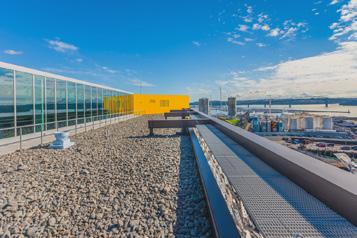
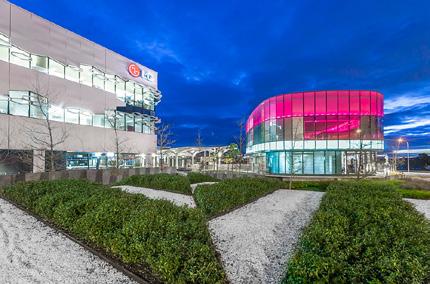
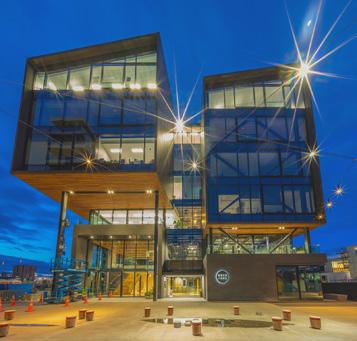
50+ YEARS OF PROVEN PERFORMANCE IN THE FIELD
We have handpicked the leading product from around the globe to offer the best waterproofing solutions.
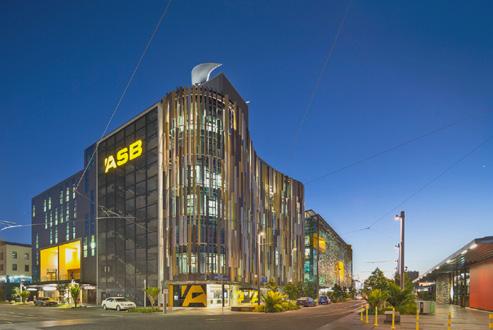
ONE SUPPLIER ONE APPLICATOR ONE WARRANTY
TANKING
ROOFING, DECKS & PODIUMS
ALLTHERM WARM ROOF & ALLRITE RECOVER ROOF
SEIMIC & EXPANSION JOINTS
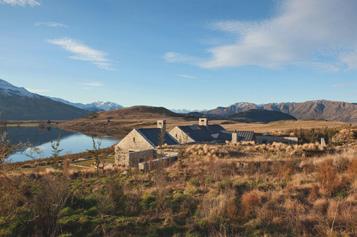
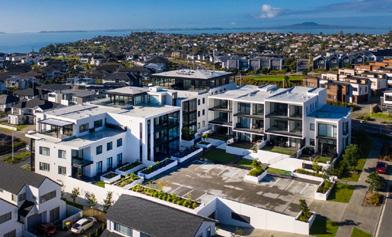
Sustainability updates

Environmental sustainability continues to be a high priority at Winstone Wallboards. Throughout 2021 we’ve been working to improve our sustainability position particularly around improving the availability of plasterboard offcut recycling options.
GIB® Plasterboard Offcut Recycling
Working with a diverse range of waste collection businesses from around the country plasterboard offcut site collection services are currently available in Auckland, Nelson, Christchurch and Queenstown with further regional services on track to be introduced throughout 2022. There are also a growing number of regional council offcut collection points at landfill sites as well as a growing number of composting companies looking to accept plasterboard offcuts into their operations.
Why does this all matter? Because not only does it reduce the amount of waste going to landfill, but the gypsum that’s extracted from the plasterboard offcuts is reused for compost and other agricultural products.
To learn more about recycling options for GIB® plasterboard including a list of current providers go to gib.co.nz/ sustainability/
Minimising Plasterboard Waste
Most of us know that plasterboard offcuts are among the largest contributors to site construction waste, and to effectively tackle the problem everybody has a part to play. Clear ownership and accountability for waste minimisation, both during design and construction, is essential, and reducing the amount of plasterboard waste created on site is a vital piece of the puzzle. That’s why our team has developed a series of practical steps to help installers with ‘Onsite Tips’ and designers with ‘Design Tips’ to support the building industry minimising construction waste especially as landfill disposal costs continue to increase year on year.
Composting Guidelines
Why you should consider including Gypsum into composting products is outlined on our ‘Plasterboard composting guidelines’. It covers best practice guidance through to the many benefits composting brings
Environmental Certifications
Winstone Wallboards’ holds a number of environmental certifications to help support your project including an Environmental Product Declaration (EPD) for GIB® plasterboard and other certifications such as Global GreenTag and Declare. In 2021, GIB Aqualine® , GIB Weatherline®, GIB Barrierline®, GIB Toughline® and GIB Toughline® Aqua became the GECA (Good Environmental Choice Australia) Ecolabel certification which is a recognised ecolabel on both sides of the Tasman.
Moving in to the New Year and reflecting on 2021, we take great pride in our achievements and new partnerships. But the journey is far from over, we look forward to having an even greater impact on all things green in 2022 and beyond.










